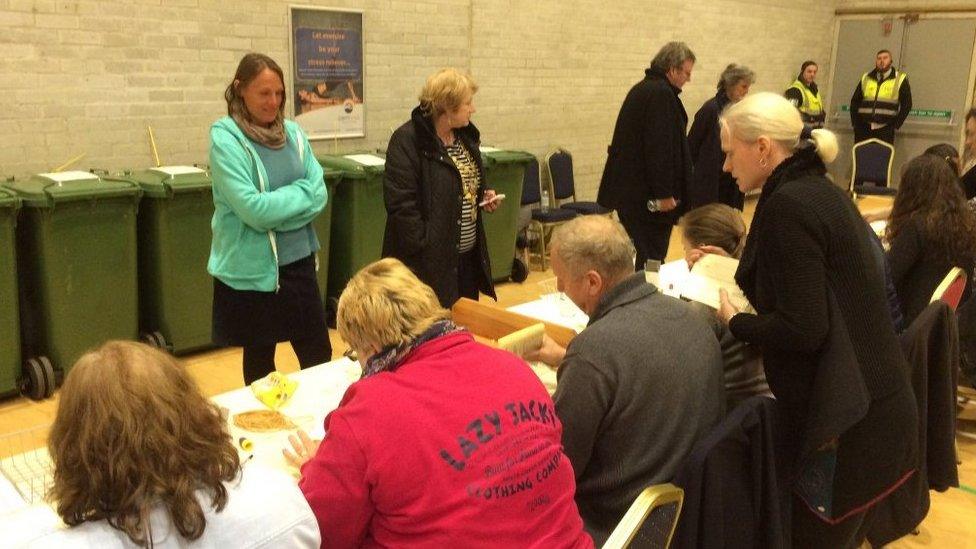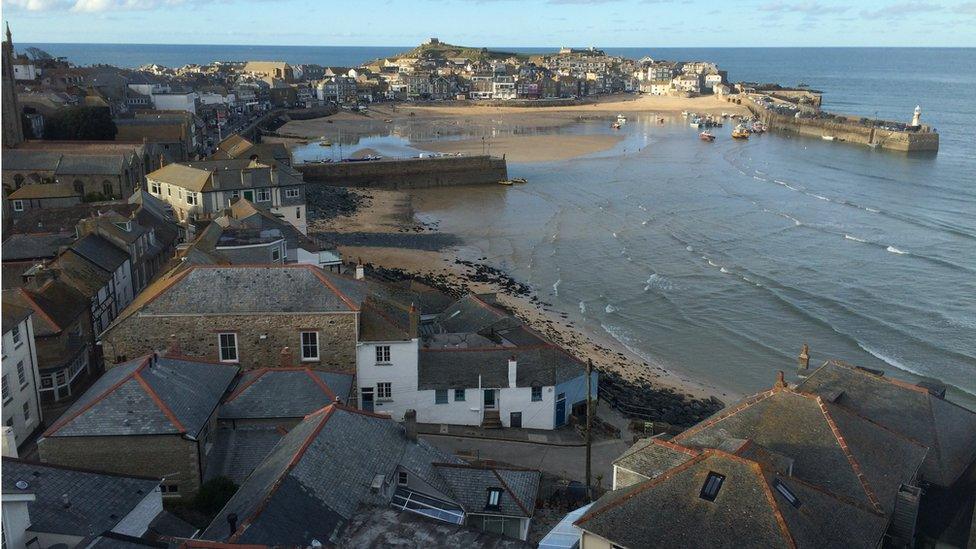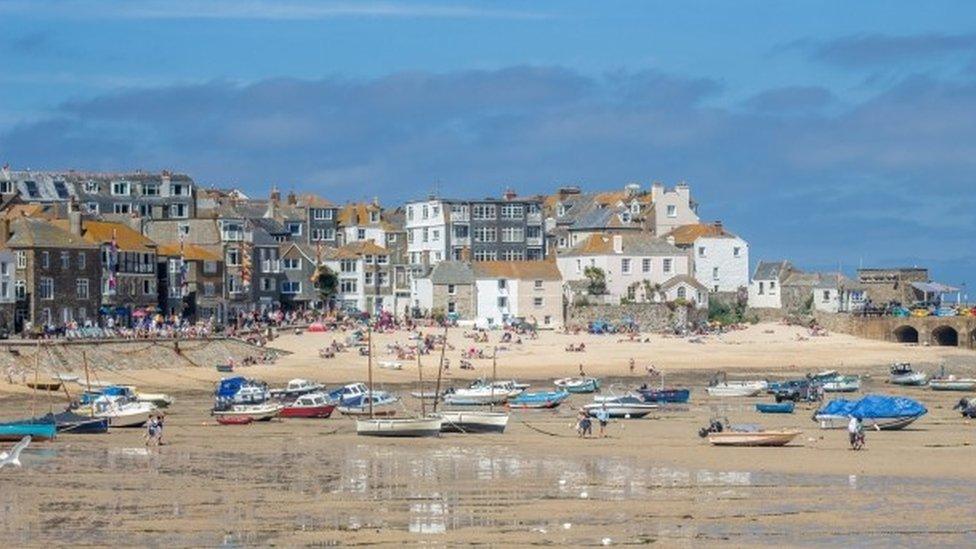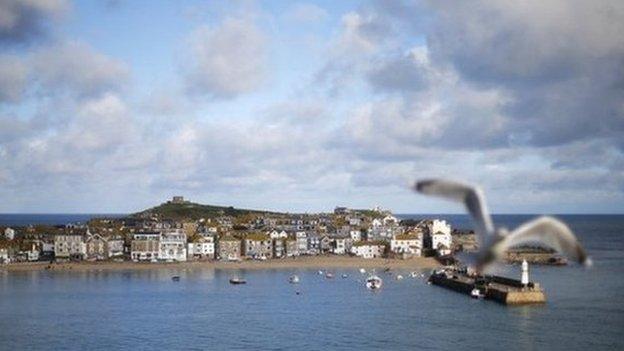St Ives referendum: Second homes ban backed by voters
- Published
A seaside town has voted to stop the building of second homes
Residents of a seaside town have stemmed the tide of second homes-building in a referendum to ban construction.
St Ives held the vote after a surge in holiday homes in the Cornish town and a shortage of affordable housing.
The plans mean new housing projects will get planning permission only if reserved for full-time residents.
More than 80% of voters backed the ban. However, a local firm has taken legal action over the decision to hold it.

Votes for the second homes referendum were counted in Carn Brea
Cornwall Council, which oversaw the referendum for St Ives Town Council, said it would "carefully consider the grounds on which the claim for the review" were made, but it was confident the correct process had been followed.
Cornwall Council said there was a 42.7% turnout, of which 83.2% voted for the ban.

Analysis: Martyn Oates, BBC South West Politics Editor
Cornwall Council has said it will respect the decision of the people of St Ives when considering future planning applications.
However, with little land left for new builds, it's not immediately obvious how this measure will affect property prices in the town.
All planning decisions are open to legal challenges and it will be interesting to see how developers react to the St Ives vote.
Meanwhile the government is looking at changing the rules so that communities can only have a vote on issues that a parish council has responsibility for.
Ministers say they want to make sure the system isn't abused with local polls on issues that don't fall under the remit of parish councils.

The vote, in which residents were asked whether they agreed with a ban on building any housing other than "principal homes", came after the number of second homes in St Ives topped 25% of the total housing stock, according to the town council.
Amy Milton, 29, who rents in St Ives, said: "It's jam-packed with holiday lets, but hopefully this ban will make it stop.
"Hopefully, it might mean I will be able to get on to the property ladder."
'Glut of holiday homes'
The owner of one firm, which provides cleaning services for second homes in West Cornwall, said he was "not overly concerned" by the vote.
He did not want to be named, but told BBC News: "We need second homes as they offer the tourist industry a huge boost.
"However, there does seem to be a glut of holiday accommodation and the people who have second homes are having trouble filling them."
Concerns over a lack of affordable housing have been pitched against the costs for landowners, and fears house prices would inflate further.

"Local communities, like St Ives, are being threatened by our severe drought of genuinely affordable homes in this country and, understandably, more and more people are demanding solutions," Roger Harding from the charity Shelter said.
"Our housing crisis is reaching boiling point and is leaving families living in fear that their children will be forced out of the towns and villages they've grown up in, simply because they'll be priced out of a home of their own."
The seaside town's debate has reverberated around the world.
"I've been interviewed by media in Canada, New Zealand and Israel who have similar problems", town mayor Linda Taylor said.
She said she was "overwhelmed" by the "remarkable support for the mandate" and the "tremendous turnout".
She said: "St Ives should be incredibly proud", adding it was "one of the biggest changes for St Ives in recent times".
'Squeeze up' house prices
The ban, which is part of the St Ives Area Neighbourhood Development Plan, external, also means developers will not be allowed to sell buildings to anyone who has a residence elsewhere.
But Christopher Balch, professor of planning at Plymouth University, said there were risks involved in the plan.

The number of second homes in St Ives has topped 25% of the total, according to the town council
"We live in a society where we have free markets [and] if you choke off new homes, second home owners may start buying existing homes," he said, adding this could "squeeze up" current prices.
Prof Balch said other councils would be watching the impact of the policy in St Ives over the next 12 months.
Lynton and Lynmouth in Devon has already stopped the development of new second homes in its neighbourhood plan, external.
"Neighbourhood planning is giving people a real say over what gets built where in their community, ending the top-down approach to planning", a spokesperson for the Department for Communities and Local Government said.
"So far more than 170 neighbourhood plans have been approved at referendum, with 1,800 more areas involved covering around 10m people.
"We are not commenting on the St Ives neighbourhood plan as we are aware a legal challenge has been launched against it."
- Published4 April 2016

- Published7 November 2014
